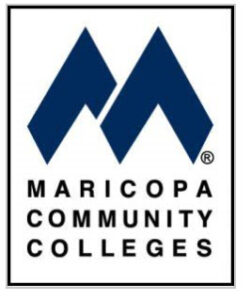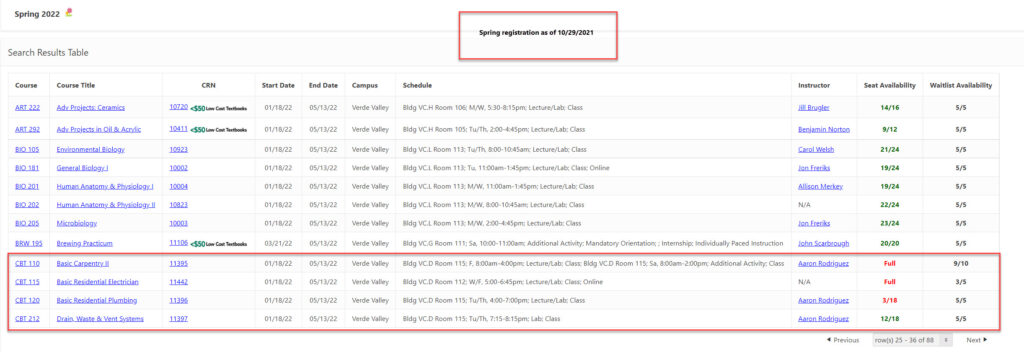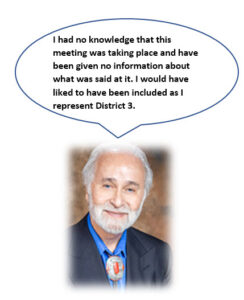Suddenly and without explanation College posts only an agenda summary without attachments, which reduces significant information being given to public in advance of meeting the Board will discuss and/or approve; has yet to post video of last month’s meeting, breaking with years of precedent; Governing Board appears to go along with sudden change to limit information to the public prior to meeting and non-posting of video recordings
 The Yavapai Community College District Governing Board will hold its monthly General Public Meeting on Tuesday, November 9, 2021, at 1:00 p.m. at the Rock House on the Prescott Campus in Prescott, Arizona.
The Yavapai Community College District Governing Board will hold its monthly General Public Meeting on Tuesday, November 9, 2021, at 1:00 p.m. at the Rock House on the Prescott Campus in Prescott, Arizona.
Under Arizona law, the public has a right to attend, listen, tape record or videotape these meetings. The public may not disrupt, but may speak during the call to the public at the beginning of this meeting if the call is on the agenda. See Ariz. Att’y Gen. Op. No. I78-001.
The Community College has suddenly changed its decade-long policy of providing the attachments on-line when it announces the agenda for the meeting. This reduces a significant amount of information relevant to the agenda that the public might find useful in deciding whether to make a 150-200 mile round-trip drive to attend.
Note that the process followed for the last decade has been to provide as much information to the general public about the agenda on-line prior to the meeting. Also note that The Yavapai Community College District covers all of Yavapai County consisting of 8,125 square miles. The size of the County is comparable to states such as Connecticut (5,543 sq. miles — 12 community colleges and universities), Delaware (1,982 sq. miles — three community colleges and universities), Rhode Island (1,214 sq. miles— one public and two private community colleges) and New Jersey (8,723 sq. miles — 19 community colleges and universities). The state of Israel encompasses 8,550 square miles (ten universities and 53 colleges).
In some cases, a person might have to make a 150-200 mile round trip in Yavapai County to attend Community College Board meeting.
Also note that the Community College has not posted the videotape of the October meeting on the October web site, once again breaking with a years-long precedent set by the Governing Board to keep the residents of the huge County properly informed.
Apparently, the Community College Governing Board has accepted the new policy of providing the public with as little information as it can legally get away with when it comes to various Board meetings.
 The Maricopa Community College District, which includes 10 colleges across the Phoenix area, announced November 4 plans to launch its first baccalaureate degrees in programs including information technology, public safety administration, behavioral health science and education. The degree programs are expected to begin in fall 2023, pending approval.
The Maricopa Community College District, which includes 10 colleges across the Phoenix area, announced November 4 plans to launch its first baccalaureate degrees in programs including information technology, public safety administration, behavioral health science and education. The degree programs are expected to begin in fall 2023, pending approval. On November 2, 2021, the Arizona Supreme Court, after only two hours of deliberation, found that several provisions of the 2022 state budget, including a controversial ban on face mask mandates in K-12 schools, violate a provision of the state constitution requiring individual bills to encompass a single subject.
On November 2, 2021, the Arizona Supreme Court, after only two hours of deliberation, found that several provisions of the 2022 state budget, including a controversial ban on face mask mandates in K-12 schools, violate a provision of the state constitution requiring individual bills to encompass a single subject.  It was reported by the Arizona Republic newspaper and other media on November 1, 2021 that two nursing students have sued Maricopa Community Colleges over a requirement they get vaccinated against COVID-19. They claim the community college district is violating their free exercise of religion by not helping them to graduate as scheduled or providing preferred accommodations since they are refusing to get vaccinated for religious reasons.
It was reported by the Arizona Republic newspaper and other media on November 1, 2021 that two nursing students have sued Maricopa Community Colleges over a requirement they get vaccinated against COVID-19. They claim the community college district is violating their free exercise of religion by not helping them to graduate as scheduled or providing preferred accommodations since they are refusing to get vaccinated for religious reasons.


 Classes being offered for spring 2022 semester at the Career and Technical Education Center on the Verde Valley campus are already full or filling. Basic Carpentry II and Basic Residential Plumbing courses were filled almost as soon as the Community College published the list of available courses being offered in the spring 2022 session. The Basic Residential Plumbing course has only three seats left.
Classes being offered for spring 2022 semester at the Career and Technical Education Center on the Verde Valley campus are already full or filling. Basic Carpentry II and Basic Residential Plumbing courses were filled almost as soon as the Community College published the list of available courses being offered in the spring 2022 session. The Basic Residential Plumbing course has only three seats left.
 Community College President Dr. Lisa Rhine, Yavapai Community College Vice President of Community Relations and Student Development, Rodney Jenkins; Governing Board Chair Deb McCasland; Richard Hernandez, Director of the Regional Economic Development Center; representation from the Verde Valley Regional Economic Organization; and representation from the Clayton Company were all in attendance.
Community College President Dr. Lisa Rhine, Yavapai Community College Vice President of Community Relations and Student Development, Rodney Jenkins; Governing Board Chair Deb McCasland; Richard Hernandez, Director of the Regional Economic Development Center; representation from the Verde Valley Regional Economic Organization; and representation from the Clayton Company were all in attendance.  Every eight years the nursing program at Yavapai Community College is evaluated for reaccreditation by the Accreditation Commission for Education in Nursing (ACEN) The ACEN is recognized by the United States Department of Education (USDE) as a specialized accrediting agency. It is also recognized by the Council for Higher Education Accreditation (CHEA).
Every eight years the nursing program at Yavapai Community College is evaluated for reaccreditation by the Accreditation Commission for Education in Nursing (ACEN) The ACEN is recognized by the United States Department of Education (USDE) as a specialized accrediting agency. It is also recognized by the Council for Higher Education Accreditation (CHEA).